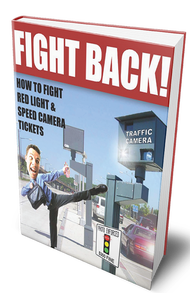PhantomALERT App
PhantomALERT App. Avoid Costly Traffic Tickets with PhantomALERT app.
Government actors use fines and fees to attempt to offset the costs of their operations, and threaten strict penalties for not paying up. Through it, the criminal legal system relies heavily on collecting money from the very people targeted by the system. When people can’t pay, they face mounting penalties: more fines and fees, driver’s license suspensions, longer terms of probation, and even arrests and incarceration. If someone is then caught driving when their license is suspended or breaking a probation rule, they face arrest and incarceration again. Police are then charged by the courts to enforce these punishments, acting as debt collectors on behalf of the state and giving them a reason to target people the system has already harmed. Thus, these penalties inextricably link fines and fees to over-policing, criminalization, and mass incarceration.
The human toll is devastating, often sparked by small infractions. In a recently published ACLU report, one person interviewed on how fines and fees impacted them said it all started with a $175 fine for illegally tinted windows. After additional court fees were added to that ticket, he owed over $1,000. When he couldn’t afford to pay, he lost his driver’s license, faced arrest warrants, incarceration, and additional fines and fees amounting to thousands of dollars. As a result, he lost his job and health insurance, his credit score declined, he was hospitalized multiple times for anxiety attacks, and he still struggles five years later when deciding whether to pay this debt or buy food. His experience is typical for millions of people who cannot afford to pay their tickets.
Without intervention, the fees and fines system will continue to spin out of control. One recent study estimated that judges have the choice of whether to impose a fee or fine in well over 30 million low-level cases per year — not even including traffic cases. Courts already take advantage of this option often — the percentage of people convicted in the U.S. who received court-ordered fines grew from 25 percent to 66 percent from 1991 to 2004. The amounts charged snowball, making it impossible for some people to afford paying them off. In 2019, the Federal Reserve reported that 6 percent of adults had outstanding legal or court debt. But this doesn’t impact everyone equally — Black adults (12 percent) and Latinx adults (9 percent) are more likely to have these debts than white adults (5 percent). The more people that cannot afford to pay and are punished with police intervention and time behind bars, the less money these local governments make as they spend significantly more to enforce the debt than they will receive.
Now is the time to stop balancing budgets through ticketing. Nevada’s latest reform is a significant step in that direction: Decriminalizing minor traffic offenses so that nonpayment cannot result in warrants for arrest will decrease policing for profit and debtor’s prisons. It will also alleviate police, court, and incarceration costs across the state.
But this is only the first step — all state legislatures should pass laws to:
- Decriminalize all low-level offenses, including but not limited to traffic violations
- Remove fees as an option for local stakeholders to impose on remaining offenses
- Make fines more affordable and equitable by considering a person’s income
- Require proportionality of a fine compared to the offense
- Ban police from enforcing payments, thereby reducing unnecessary police contact
- End warrants and penalties for failure to pay
The system of fines and fees to collect revenue for local governments is broken. It pulls people into lifetime cycles of debt and incarceration. Courts and other public services should be fully funded through tax dollars, not through predatory fees and over-policing. The criminal legal system’s solution to tighter budgets must instead be a resounding rejection of mass incarceration tactics that only increase the number of people in the system, how long they are there, and the costs to keep them behind bars and under supervision. It’s time for us to let our governments know our demand: No more taxation through citation.



